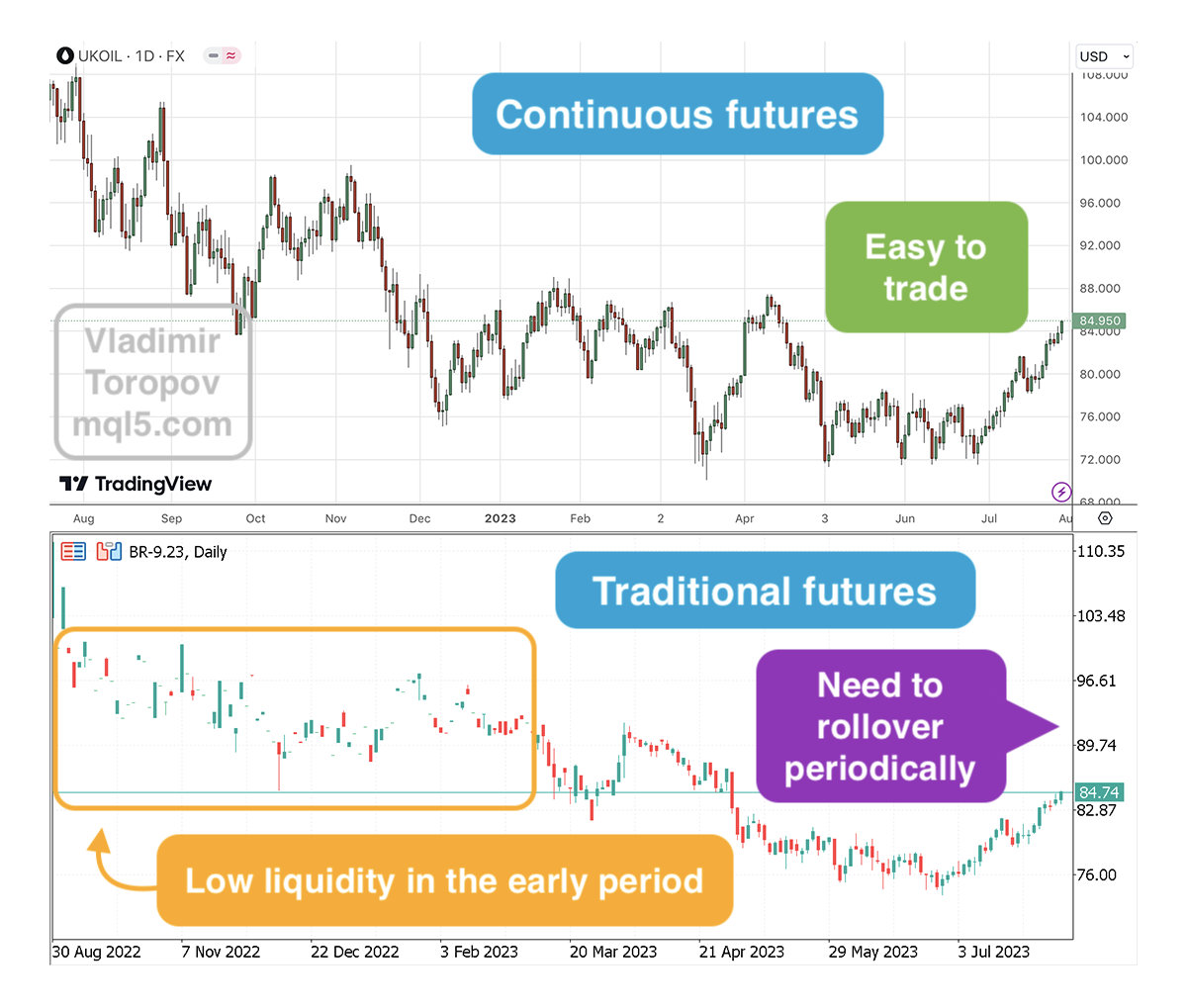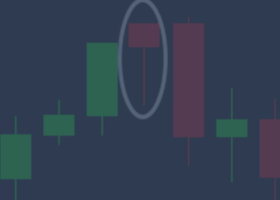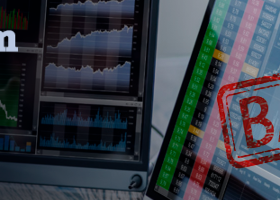Continuous futures refer to a type of financial derivative contract that allows investors to buy or sell an underlying asset at a predetermined price, with settlement occurring at a future date. As you know, traditional futures contracts have specific expiration dates.
Unlike traditional futures contracts, continuous (perpetual) futures contracts do not have a fixed expiration and can be rolled over indefinitely.
The difference between continuous futures and traditional futures
In traditional futures markets, contracts typically have fixed expiration dates, such as monthly or quarterly expirations. As a contract approaches its expiration date, traders need to close their positions or roll them over to a new contract with a later expiration. This process of rolling over contracts can introduce complications and potential disruptions to trading strategies.
Continuous futures address this issue by providing a seamless transition between different contract expirations. Instead of dealing with specific contracts, perpetual futures represent a synthetic contract that mimics the behavior of the underlying asset over time. The perpetual future is created by stitching together multiple individual contracts, each with its own expiration, to create a continuous price series.

My solutions on MQL5 Market: Vladimir Toropov’s products for traders
To achieve this continuity, when a futures contract nears its expiration date, the continuous futures contract is rolled over to a new contract with a later expiration. This rollover process involves closing out the existing contract and simultaneously opening a new one. The rollover is typically done based on a predetermined methodology, such as a fixed time period or specific trading days before the expiration.
Increase in liquidity
Continuous futures contracts are widely used in various financial markets, such as commodities, currencies, and equity indexes. They provide market participants with the ability to maintain exposure to the underlying asset without the need to constantly monitor and manage expiring contracts. Perpetual futures offer increased liquidity, as traders can continuously trade the synthetic contract without being restricted by specific contract expirations.
It’s important to note that the specific mechanics and conventions of perpetual futures can vary depending on the exchange and the underlying asset being traded. Traders and investors should familiarize themselves with the details of the particular continuous futures market they are interested in trading.
My solutions on MQL5 Market: Vladimir Toropov’s products for traders



